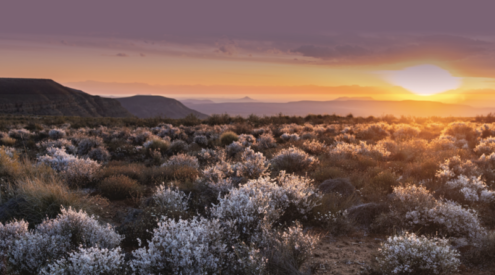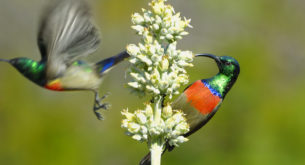This Friday, the Northern Hemisphere will see a full Pink Moon rising in the night sky. Despite it’s name, the moon will not actually be pink in colour. The name ‘Pink Moon’ comes from the moss pink or wild ground phlox. The flowers are indicative of the beginning of Spring in the Northern Hemisphere, giving the recurring full moon it’s name. Other names for this moon include Egg Moon, Fish Moon and Sprouting Grass Moon.
View this post on Instagram
According to Space, the moon will be three days past perigee, the point in the moon’s orbit where it is closest to Earth. This means that the moon will almost be a supermoon, where it appears larger and brighter than normal. A full moon occurs when the moon is on the exact opposite side of the Earth from the sun. The moon’s shine is actually a reflection of the sun’s light. If the moon’s orbit moves it into the shadow of the Earth, we see a lunar eclipse.

The only time that the moon appears pinkish in colour is during a blood moon. This is a total lunar eclipse and the moon turns a shade of orangey-pink from the light travelling through Earth’s atmosphere. Dust and smoke in the atmosphere can turn the moon a darker red colour.
According to The Farmers Almanac, in the Northern Hemisphere a full moon in April brings frost. If the full moon rises pale, rain can be expected.
The full Pink Moon brings about good news for gardeners and according to folklore, ‘The period from the Full Moon through the last quarter of the Moon is the best time for killing weeds, thinning, pruning, mowing, cutting timber, and planting below-ground crops.’
The best time to see the Pink Moon on Friday, 19 April are:
4.12am PDT (Los Angeles)
4.12am MST (Phoenix)
5.12am MDT (Salt Lake City)
6.12am CDT (Chicago)
7.12am EDT (New York)
12.12pm BST (London)
1.12pm CEST (Paris)
On 16-17 July there will be a partial lunar eclipse will be visible, weather dependent, in South America, Europe, Africa, Asia and Australia. In South Africa the eclipse will begin at 8:43 PM on 16 July and will end at 2:17 AM on 17 July.
Feature image: Unsplash
















